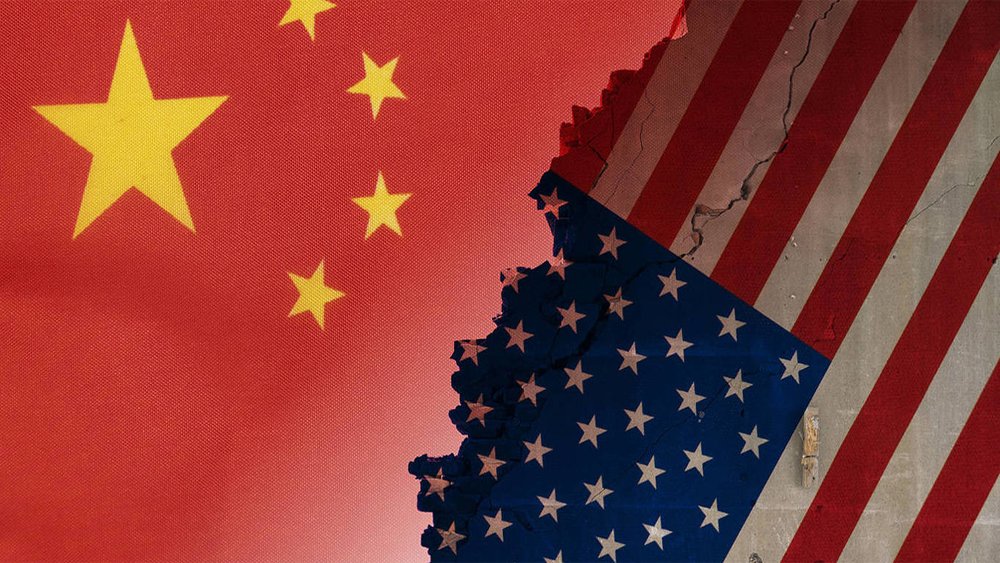Although they peaked at over US$1 tln representing the US’s largest foreign creditor, and have fallen since during the Biden presidency to about US$780 bln to be the second largest (after Japan), China’s holding of US debt securities is still massive, and a potential tariff-war response lever.
But China has not yet resorted to using that power.
Waiting has given them more insight on how to use it. When Trump blinked in the face of a bond market warning, and put off the implementation of additional tariffs for most countries (except China), Beijing’s asset managers got a great insight into how the bond market would respond.
Current estimates are that for every percentage point rise in the yield on US Treasuries, it will cost the US government approximately US$100 bln per year.
The Trump policies of tax-cuts-for-the-rich, in combination with a recession, clearly mean US Treasury issuance is going to explode – just like it did in the first Trump administration. The US Treasury will issue at least US$2 tln in new debt this year alone, as well as roll over US$8 tln in maturing bonds. In out years, investors can see this being a low point.
In their naivety, US Treasury Secretary Bessent said their are on track to reduce their deficit to 3% of GDP by 2028. But the Congressional Budget Office forecasts that the US deficit will be 5.2% – 6.2% from 2025 – 2028 – at the very least two percentage points higher than the target. No-one credible believes Bessent (and probably not Wall Street veteran Bessent himself either).
Trump’s chaotic policymaking has exposed his core weakness. US Treasuries are fast shedding their status as the world’s leading safe haven asset. America’s backyard is on fire. China will find use for its US$780 billion arsenal.
It is that alternative use in the next few years that may explain why Beijing has not moved to accelerate the fall in value of the US position. Beijing seems to view this as a double-edged situation. They currently appear more preoccupied with preserving the value of China’s foreign reserves, which would take a major hit as a direct consequence of any sharp decline in US Treasury values or the US dollar.
Dumping their US holdings would likely cause a surge in the yuan and a decrease in its use for export competitiveness.
Then again, a stronger yuan would support lower prices for internal consumption, which is a clear, well-articulated policy goal of Beijing. But a disorderly and fast unraveling of the US positions is not in their interests even if it is over a longer timeframe.
But China is aware of the risks of holding US dollar securities. Trump is unstable, in their view, and holding such a large proportion of their assets in US dollars isn’t ideal. The American point out that “there is no alternative”. But they are blinded by their own rhetoric. There are always alternatives, even at scale. But China is being challenged to find or develop them. And that won’t be easy, even if they think it is necessary.
Meanwhile, the US Treasury market is becoming more brittle. High-velocity traders and hedge funds as key “shadow dealers” on the US debt markets are rising in importance as buyers, despite suffering from weak capital foundations and limited ability to bear risk. In contrast, the role of more traditional investors such as foreign monetary authorities, insurance companies and pension funds, are all showing less appetite to bid or buy Bessent’s new debt.
If you add into the equation the mystical, magical “Mar-a-Lago Accord“, the threat is that holders of US Treasuries that pay interest would be forcibly swapped out for US “century bonds”, ones that pay no interest. Not too many investors, either in the US or outside, would sign up to that, even in the face of tariff threats.
So, what is China to do? They haven’t tipped their hand but they are clearly working on it, having started in the first Trump presidency. One thing they almost certainly won’t do is call Trump to negotiate tariffs. They see this as almost a unique opportunity to fast-track a new world financial order.
China has its own issues. And they too are costly. So having their US Treasury asset worth something is helpful in the short run at least. They will let their US exposures slip monthly until they are minor and manageable.
China is not voting for chaos, even if Trump is. The referee is the bond market.
The US moves and consequences are plain for all to see. But Chinese policy and actions are less clear. If you have insights into actual Chinese policy moves, please note them in the Comment section below.

